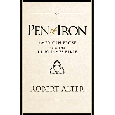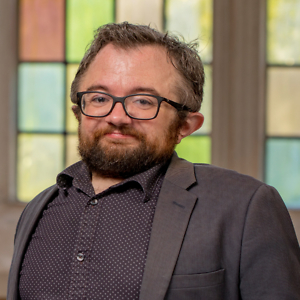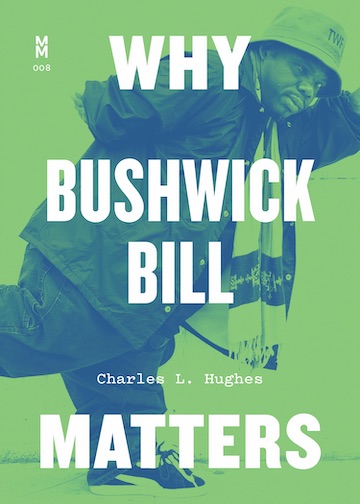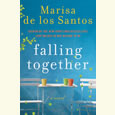History as Muse
Brenda Rickman Vantrease talks with Chapter 16 about love, politics, and power in a time of religious upheaval
In Brenda Rickman Vantrease’s Tudor England, life is treacherous for all. Henry VIII is increasingly impatient to marry Anne Boleyn—a marriage that can only take place if he severs his country’s connection to the Catholic Church. His Lord Chancellor, Thomas More, is determined to keep Protestant heresy out of England through imprisonment, torture, and execution, when necessary. And Kate Gough is caught in the middle. When her brother is taken to prison for selling English translations of the Bible—a primary goal of the Protestant movement in Europe and considered an act of heresy in England—Kate attempts to continue that mission. In the process, she meets John Frith, a zealous reformer who has also been imprisoned for his beliefs. In The Heretic’s Wife, now out in paperback, Kate and John attempt to stay true to their faith and their love. But the times are against them. Brenda Rickman Vantrease, a former Nashville school librarian who’s now a full-time novelist, recently answered questions via email about the tension between religion and government, and the challenge of writing historical fiction in which some of the characters actually lived through history.
Chapter 16: You’re a historical novelist, of course, but what appealed to you most about setting a story in this particular historical period?
Vantrease: Although I’ll admit to a fascination since girlhood for the nefarious Henry VIII and the sad fate of his wives, especially the dark-eyed Anne Boleyn, this fascination wasn’t what drew me to this period. On the contrary, I think the Tudor period has been overdone. But the trail I discovered in researching the historical background for my first two books, The Illuminator and The Mercy Seller, led me right to the heart of the Tudor court for this third one. In my research I first encountered the horrific struggle for the translation of the Bible into the vernacular, a struggle that, due to the efforts of John Wycliffe, was just beginning in earnest in 1379. During the first half of the sixteenth century that struggle culminated in the Protestant Reformation in Europe and the establishment of the Anglican church in England. This historical trail of religious conflict led me to the characters and setting of The Heretic’s Wife. In the conflict between the Bible translators and Sir Thomas More, I found what I think is the dramatic climax and turning point in that struggle. The rich and familiar setting spurred my imagination—and royals behaving badly do seem to have a perennial appeal.
Chapter 16: Many of your characters are actual historical figures. What are the dangers of working with people who actually lived—and, in the case of Henry VIII, Anne Boleyn, and Thomas More, are so well known?
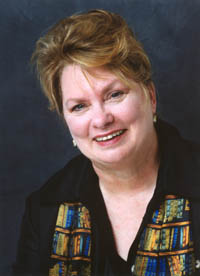 Vantrease: You are correct in suggesting there are dangers, but there are also advantages. The success of a story requires something from both the writer and the reader to make the story really live in the reader’s mind, to make it become a shared experience of the imagination. If the reader has a bias or a preconceived notion about an historical character unlike or even opposite to the aspect of the character explored in the story, that can be an obstacle to the reader’s “willing suspension of disbelief.” The writer suddenly seems not credible.
Vantrease: You are correct in suggesting there are dangers, but there are also advantages. The success of a story requires something from both the writer and the reader to make the story really live in the reader’s mind, to make it become a shared experience of the imagination. If the reader has a bias or a preconceived notion about an historical character unlike or even opposite to the aspect of the character explored in the story, that can be an obstacle to the reader’s “willing suspension of disbelief.” The writer suddenly seems not credible.
The writer’s burden is to disarm this bias—or appeal to it though the reader’s curiosity—fairly early on. This can best be done by making sure the history supports this variant point of view and by showing the character in his full humanity—making room within the character for both interpretations, showing that there are many truths that can exist simultaneously without one cancelling out the other. On the other hand, using well known characters can draw the reader in. There are many historical celebrities, both the famous and the infamous, who have established a fan base among readers of historical fiction, marquee names with instant appeal, like Anne Boleyn or Henry the VIII.
Chapter 16: Readers whose knowledge of Thomas More comes exclusively from A Man for All Seasons will be shocked at his characterization in your novel. Did you have any concerns about presenting a side of his character that is so at odds with the Hollywood version?
Vantrease: Yes, from the very beginning. When I first pitched my storyline, before I had committed a word to paper, my agent responded very positively by telling me that in his youth he had much admired Sir Thomas More. (I mean, didn’t we all. Who could watch A Man for All Seasons and not respond to such resolute courage?) After I explained that Sir Thomas was more villain than hero in my story, there was a pause on the telephone. Finally—wonderful, open-minded, discerning man that he is—he responded by telling me to send him some chapters. I introduced my characterization of a flawed Sir Thomas in chapter two and waited anxiously for an answer. What a relief to hear my agent—himself an admirer of the Sir Thomas More of saintly legend—say he was hooked from chapter two.
There is much about the character of More to be admired: his brilliance, his wit, his philanthropy, and in the end his courage. But there was also a darker side. All human beings are flawed; Thomas More was tragically so. Some of my critics have indicated that I was too hard on him, that in his brutal treatment of those he considered heretics he was merely acting as a man of his time would act. My counter to them is that to whom much is given, much is expected. Such a man should have been able to transcend the limitations of his society. Others have. That’s how societies evolve—through these spiritual visionaries. And of course, in the end, history is about perspective, isn’t it. “What is history but a fable agreed upon?” (Napoleon Bonaparte.) There was much of fable in A Man for All Seasons, a fable about dying well. Thomas More died defending two powerful institutions: the law and the Roman Church. Is it any wonder that these institutions choose to celebrate his courage to the exclusion of his sins?
Chapter 16: The women in this novel are all victims in some sense, yet they never come across as truly helpless. What are the challenges of creating female characters who are historically accurate but who also appeal to a modern reader’s sensibility?
Vantrease: The challenge is in making them strong without making them anachronistic. It is a very fine line. My best defense against those who say some of us cross that line when we put fictional strong women in patriarchal societies is to point out the many examples of strong women mentioned in the historical record.
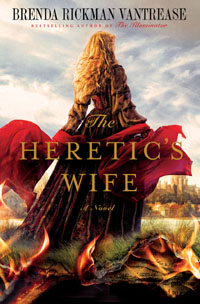 The greatest challenge comes for the modern reader, I think, not in accepting the strength of female characters, but rather in maintaining sympathy for a character who shows lack of sensitivity to racial, political, or social perspectives that modern societies have resolved. Because my fourteenth-century heroine in The Illuminator reflects a societal prejudice against Jews, I got a letter or two from some who were offended. (On the other hand, in that same novel, Finn, the male protagonist, shows a burgeoning tolerance and has even committed a crime against the state by loving and marrying a Jew. I got letters saying his attitude was anachronistic—that he was too enlightened for his time.) Kate Gough, the fictional heroine in The Heretic’s Wife comes from a long line of dissenters. This background helps the reader to accept—I hope—the fact that she can embrace what would be, for a woman of her time, radical ideas about freedom.
The greatest challenge comes for the modern reader, I think, not in accepting the strength of female characters, but rather in maintaining sympathy for a character who shows lack of sensitivity to racial, political, or social perspectives that modern societies have resolved. Because my fourteenth-century heroine in The Illuminator reflects a societal prejudice against Jews, I got a letter or two from some who were offended. (On the other hand, in that same novel, Finn, the male protagonist, shows a burgeoning tolerance and has even committed a crime against the state by loving and marrying a Jew. I got letters saying his attitude was anachronistic—that he was too enlightened for his time.) Kate Gough, the fictional heroine in The Heretic’s Wife comes from a long line of dissenters. This background helps the reader to accept—I hope—the fact that she can embrace what would be, for a woman of her time, radical ideas about freedom.
Chapter 16: In some ways, the religious controversy of this time was less about faith than about politics and power, with the truly religious serving as the scapegoats. Do you see a parallel between that time and ours?
Vantrease: Some anti-religionists are fond of pointing out that the bloodiest wars in history have been fought over religion. Our own time is, of course, an immediate and troubling example. But a closer look shows that such religious wars have more to do with the struggle for power than any spiritual yearning for a better understanding of God. The Reformation wars were seeded in the desire to protect the most powerful political and economic institution of the middle ages, an institution that had been corrupted by men more interested in the perpetuation of personal wealth and political power than in the message of love and redemption that the institution was founded to deliver. A parallel will always exist as long as such persons use the religious and spiritual impulses of humanity to further their own corrupt agendas. And as you so wisely point out, the truly devout are often the victims, such as the poor tailors and boot makers and booksellers who were racked and imprisoned for reading, or writing, or merely reciting the Lord’s Prayer in English. History does not even record the names of some of these, merely the fact of their suffering.
Chapter 16: A great deal of research must have gone into this book; how did you know when it was time to stop researching and start writing?
Vantrease: I don’t really ever stop researching. I’m checking and double-checking details, facts, dates—my brain is a sieve where numbers are involved—until the final proof pages are set in type. But once I have a historical timeline and can plug some fictional characters into the pivotal events of that timeline, I begin the serious work of putting pen to paper—literally in the beginning, scribbled notes, scene outlines—though much of the story is already pre-written in my head. By braiding the lives of my fictional characters with the historical characters and events, the scenes unfold, but I have to pause to look up details: a recipe, the appropriate feast day for the season, whether a street name existed during my time period, etc.
Sometimes, while on these little pursuits, I’ll uncover some other fascinating tidbit that sparks my imagination. For example while writing The Illuminator, I was thumbing through old issues of British Heritage, looking for a recipe, when I came upon an article about how the first playing cards were hand-painted. Hmm. My character was a painter. What kind of playing cards would he paint? Who would be his queen of hearts? That suggested a scene which found its way into the book. History is more than just resource material for me—it is also my muse.
Brenda Rickman Vantrease will discuss The Heretic’s Wife at the 2011 Southern Festival of Books, held October 14-16 in Nashville.

